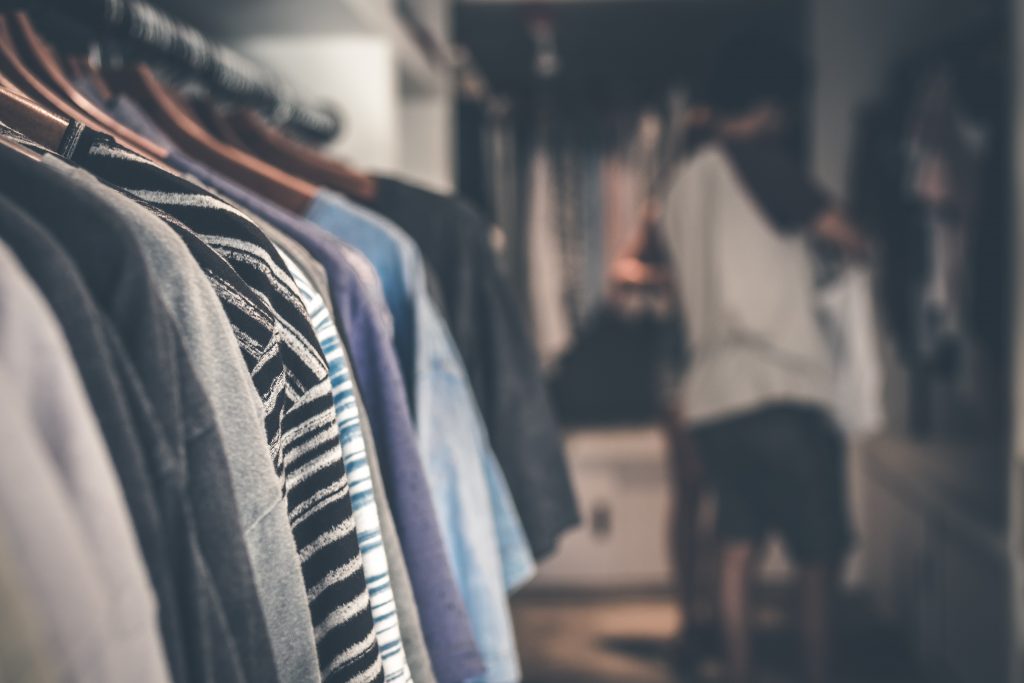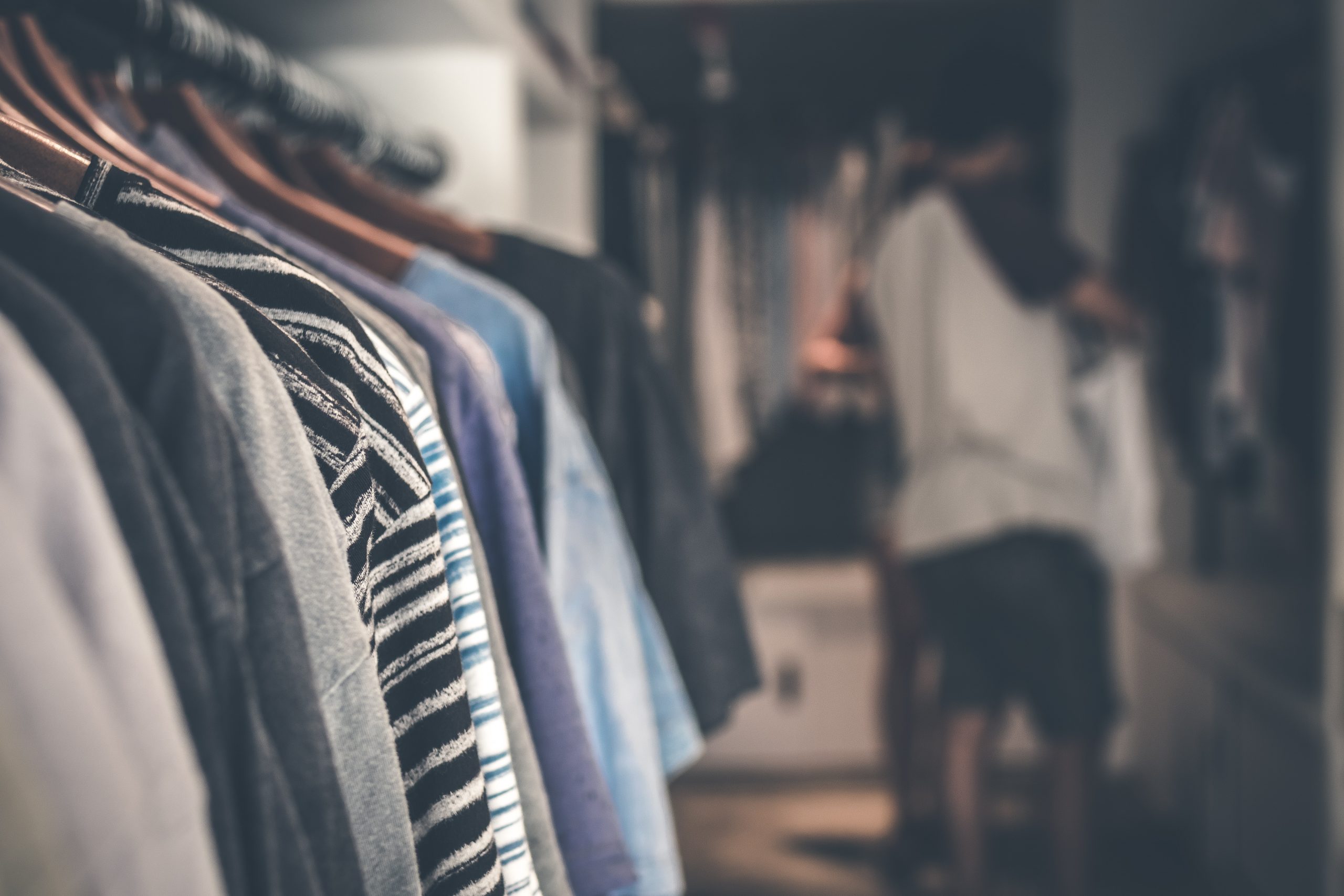
The European Commission is committed to supporting a more sustainable industry to facilitate the transition towards a low-carbon and circular economy
The transformation of our companies towards more sustainable and resource-efficient business models helps protect the environment and provides a competitive advantage by creating important cost savings and boosting innovation for sustainability.
In March 2020, the Commission adopted a new Circular Economy Action Plan – one of the main building blocks of the European Green Deal, Europe’s new agenda for sustainable growth. With measures along the entire life cycle of products, including textiles, the new Action Plan aims to make our economy fit for a green future, strengthen our competitiveness while protecting the environment and give new rights to consumers.
These recent developments are of critical importance, as fashion is one of the most polluting industries globally. In the last 15 years, clothing production has approximately doubled. Large amounts of non-renewable resources are extracted to produce clothes that are often used for only a short period, after which the materials are lost in landfills or incineration. The fashion industry can play a significant role in reaching the objective of climate neutrality by 2050, a target set by the President of the European Commission in the European Green Deal.
The scale of the opportunity is immense due to the size of the fashion industry. Five million people are directly employed in the fashion value chain. In addition, over 1 million people are employed in the high-end industries, making them one of the most vibrant and creative sectors in Europe.
Related to this, the Commission recently launched a public consultationSearch for available translations of the preceding linkEN••• before the adoption of the EU strategy for sustainable textilesSearch for available translations of the preceding linkEN••• in the third quarter of 2021. The initiative aims to set a comprehensive framework to create conditions and incentives to boost the competitiveness, sustainability and resilience of the EU textile sector, considering its strengths and vulnerabilities after a long period of restructuring and delocalisation, and addressing its environmental and social impacts. It will ensure coherence and complementarity with initiatives under the European Green Deal, the Circular Economy Action Plan, the Industrial Strategy and the Chemicals Strategy for Sustainability. You still have time to have your say! The public consultation will remain open until 4 August 2021.
COSME actions in support of circular fashion
Given this context, the COSME programme published in 2019 a call for proposals on sustainable and circular fashion. Its general objective was to enhance the competitiveness and improve the environmental performance of the European fashion industry. We can achieve these objectives by building capacity and supporting small businesses (SMEs, designers and start-ups) to become more sustainable and turn their business model into a more circular one.
In total, EISMEA has funded four projects that were launched in January 2021. With a total co-funding of 3.5 Million EUR, they involve 25 European organisations from 15 member states and all European regions: East, West, North and South Europe.
The projects will provide direct support to about 120 promising sustainable business ideas in the fashion industry with high innovation potential. The ideas must come from transnational partnerships where at least one member is an SME, a designer or a start-up.
This support will include capacity building and technical and financial support to enable the scaling-up of innovative applications, products, processes or ideas for sustainable and circular fashion.
Each project will launch a call for proposals to select the partnerships that will benefit from this support. They will open at different times depending on the project. Check their websites regularly to make sure you don’t miss the chance of participating!
Now is the time to get to know more about our projects. Meet them below!
S4Fashion: Sustainability for Fashion Industry
S4Fashion aims to empower SMEs to introduce new sustainable and circular economy products, services, methods, tools and business models for the fashion industry. The objective is to identify and amplify the best and up to date practices for a greener fashion sector.
They have recently launched an open call for proposals to select and provide funding and support to 25 transnational partnerships that aim at creating a new innovative product or service directly improving the take-up and adoption of sustainability and circularity models and practices in the fashion sectors.
The selected partnerships will receive direct funding of up to EUR 15.000 for their innovative projects. They will also benefit from additional business support services such as training workshops, mentoring, brokerage events, and investment forums to ensure the innovative projects develop into a marketable product, service or business model.
The project counts with an international consortium formed by the European Creative Hubs Network, Envolve Entrepreneurship, DataScouts, Istituto Europeo di Design and ZIPHOUSE.
CirCoAX by CircularInnoBooster: a unique business support platform to boost Fashion & Textile SME transition to regenerative, circular and sustainable businesses.
With a 2-year duration, the project aims to transform companies in the fashion and textile industry into sustainable, circular, and regenerative ones.
They will apply a progressive and innovative approach, taking into account a holistic and systemic perspective of the circular economy based on regenerative business design principles, human process designs and community participation models. The aim is to use circularity in its broadest sense, balancing the environmental, social and economic dimensions.
It will emphasise interregional cooperation, helping companies in knowledge transfer. Their work will also be focused on a diverse range of participants, from freelance professionals to innovative start-ups and SMEs in need of transformation. The goal is to cover the entire value chain from raw material to the final product, including what happens with the materials once its useful life has concluded, closing the circle of the value chain.
To make it work, CircularInnoBooster will launch CirCoAX, the circular collaborative and cooperative co-design accelerator. It will provide expert mentors and a business support scheme, including technical and financial support, to help participating partners in the emerging expansion of innovative applications, products, processes, new models, new brand building strategies or sustainable circular fashion and textile concepts.
The project is composed of an international consortium led by the European Institute of Design (IED), together with Texfor, Circulab, Finnova and The Circular Project with HumanNation.
On 27 May, they organised a session during the last Green Week that included the contribution of three other projects from the call (S4Fashion, Small but Perfect and Fashion for Change). Participants had the chance of discussing the opportunities and challenges of the circular economy in the textile sector. If you are interested, you can revisit the session on YouTube.
Finally, they will launch a call for proposals very soon, keep an eye on their website for updated information.
Small But Perfect: accelerating the rise of circular and sustainable SMEs in fashion
The project is based in the conviction that without changing the system, we cannot expect changes made, at any level, to be genuinely sustainable.
As a result, Small but Perfect also seeks to ‘accelerate the accelerators’ by working alongside business support organisations such as fashion weeks, fashion councils, industry bodies such as manufacturing and textile associations, accelerators and incubators, hubs and studio spaces, fashion districts and financing/investment schemes, to embed circularity, social sustainability and environmental sustainability into their business support and showcasing initiatives.
Additionally, it will ‘accelerate the policymakers’ by mapping the policy landscape that affects sustainable and circular fashion SMEs, ensuring a lasting impact is made across the industry from start to finish.
Over its 30 month duration, the project will develop a network for SMEs making this transition and organisations that support them, such as business incubators and accelerators, to exchange knowledge, learning and best practices to produce a broader systemic change in the fashion SME sector.
The consortium partners are the Athens University of Economics and Business (Lead partner), the World Fair Trade Organisation, the Fair Trade Advocacy Office, Bocconi University, Impact Hub Lisbon, We Love You Communications and Fashion Revolution. The supporting partners are Common Objective, University of Portsmouth and Neoynt (Studio MM04).
Their call for proposals is now open! You can apply until 3 October 2021.
Fashion for Change: Scaling up circular and sustainable fashion innovation
Fashion For Change unites an international team of five partners from three countries, including CIVITTA Estonia and the Estonian Academy of Arts and Singleton from Estonia, Ecopreneur from Belgium and Katalista Ventures from Lithuania. In addition, experts are brought in from various fields: innovation and start-ups, circular economy, finance and business, sustainability and fashion design.
The project’s overall aim is to provide financial and technical support for the small businesses in the industry, enabling acceleration and scale-up of innovative applications, products, processes, and ideas for sustainable and circular fashion.
From January 2021 to December 2023, they will deliver a combination of international events, mentorship programmes, networking activities and learning materials, all developed to empower stakeholders in the EU fashion industry.
The project will host a “designathon” (design hackathon) that will take place in Spring 2022. An open call for participants will open in winter 2022, which hopes to reach out to fashion entrepreneurs and designers with a sustainable mission from across Europe.
By using the hackathon format, they hope to stimulate the generation of innovative sustainable ideas by bringing together small businesses, experts and mentors from the fields of circular economy, finance and business, sustainability and fashion design. Furthermore, the hackathon winners will have the chance of participating in a «growth programme», which will consist of extensive training and additional financial support for the best ideas.

